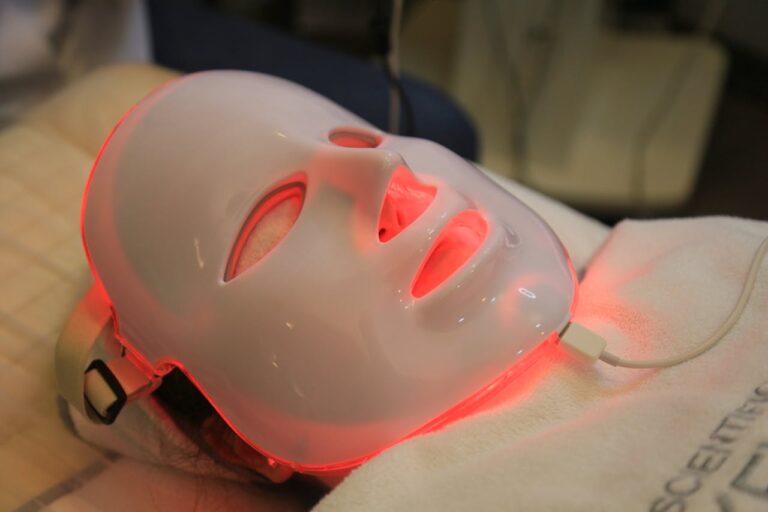Write Us: hello@ali5.org
Signs You Might Be Over-Exercising (And How to Fix It)
Discover the signs you might be over-exercising and how to fix it. Get tips on recovery, proper rest, and creating a balanced fitness routine for long-term health.

It is good for you to work out. That keeps your heart healthy, makes you feel better, and helps you control your weight. But here’s the thing: sometimes less is more. Sometimes you can push your body too far, and it can hurt you in many ways, including physically, mentally, and emotionally.
You might be working out too much if you’re always tired, moody, or stuck in a performance slump, even though you’ve been working out hard. Let’s talk about the signs, why they happen, and how to fix them. This is the most important part.
1. Being tired all the time that won’t go away
There’s nothing wrong with being worn out after a busy day. If you feel tired even though you slept well, your body is telling you that things aren’t getting better. Too much exercise wears you out and makes it harder for your brain and muscles to heal.
Things to do:
- Take one or two days off every week.
- Get enough good sleep (7–9 hours).
- Carbs, protein, and healthy fats should all be in every meal to keep your body going.
2. Not able to sleep or shaking at night
You might sleep better if you work out every day, but too much of it can make you sleep worse. When hormones that make you worry rise, like cortisol, it can be hard to fall asleep or stay asleep.
Things to do:
- Don’t work out hard right before bed.
- Do low-impact workouts like yoga, stretching, or walks on days when you need to take it easy.
- To help your body heal, sleep the same way every night.
3. Many wounds or pain that won’t go away
If your joints hurt, your muscles hurt for days, or you keep getting hurt, that’s a red flag. Stress fractures, shin splints, and other overuse injuries can happen if you do too much too quickly and don’t give your body enough time to heal.
Things to do:
- Pain is a sign, not a job to get through.
- Do movement drills and warm up the right way before you work out.
- To keep your muscles from getting tired, do new things.
4. Less well-done work
If you work out hard, you should get faster and stronger over time. If you’re working harder but getting worse results, like slower times, less strength, or trouble lifting weights that were easy for you before, you may be overtraining.
Things to do:
- As you work out and grow, keep track of both to spot early signs of plateaus.
- Take a “deload week” to rest your body by training less hard for a week.
- Focus on the right form instead of going for longer or harder sets.
5. Mood swings and anger
Your mind is one of the first things that can go wrong when you work out too much. Stress from training that lasts for a long time can make you anxious, angry, or lose in your emotions. It’s also possible to lose the desire to work out.
Things to do:
- You shouldn’t add rest days to the end of your training; they should be put in ahead of time.
- Take it easy by reading, hanging out with friends, or doing nothing at all.
- It’s just as important to take care of your mind as it is to take care of your body.
6. A less strong defense system
If you keep getting colds or feeling “under the weather,” it might not just be bad luck. Your immune system can get weaker if you train too much, making it harder for your body to fight off sickness.
Things to do:
- Eat foods that are full of good things for you. Fiber, copper, and antioxidants will help you.
- Don’t do as many hard workouts until you’re fully better.
- Don’t forget to drink enough water; not doing so can make the immune system loss worse.
7. Not wanting to eat or being very hungry
Going to the gym too often can mess up your hunger signs in two ways. Working out hard can mess up hormones like ghrelin and leptin, which makes some people lose all their hunger. Some people are always hungry because their bodies are trying so hard to get the energy they lost back.
Things to do:
- Don’t skip meals, even if you’re not hungry. Small, healthy snacks can help.
- You should eat enough for how busy you are.
- Eat meals that are good for you and high in energy and carbs within an hour of working out.
Why do too many people work out?
Many people start out by exercising too much, even though they mean to. It’s possible that you want to lose weight, get in better shape, or do better in a sport. What’s wrong? Not getting enough rest will make it harder for your body to heal itself. Your nerves stay in “fight or flight” mode, your muscles stay swollen, and your hormones don’t work right. Over time, this leads to burnout.
Why you shouldn’t work out too much
- You don’t have to wait until you hit a wall before you start getting better. This is something you can do right from the start of your prep.
- According to the 80/20 rule, 80% of your workouts should be fairly hard, and 20% can be very hard.
- Set aside time to relax. Going for a walk or doing yoga is better than doing nothing, but sometimes you just need to do nothing.
- Pay attention to your body. Do not do as much if you are tired, sore, or sick.
- Do exercise, strength training, and flexibility work at different times to avoid getting hurt from overdoing it.
When you need to see a doctor
Talk to your doctor or a sports medicine expert if you look tired, can’t sleep, or have mood swings that last longer than two weeks, even though you’ve been working out less. They can help you think of safe and effective ways to train and also rule out other health problems.
Briefly
The more you work out, the stronger you should get. It’s not a sign of weakness to rest; it’s a normal part of the process. Pay attention to the signs that you are working too much and make smart changes. It will help you work harder, get better faster, and stay healthy in the long run.







